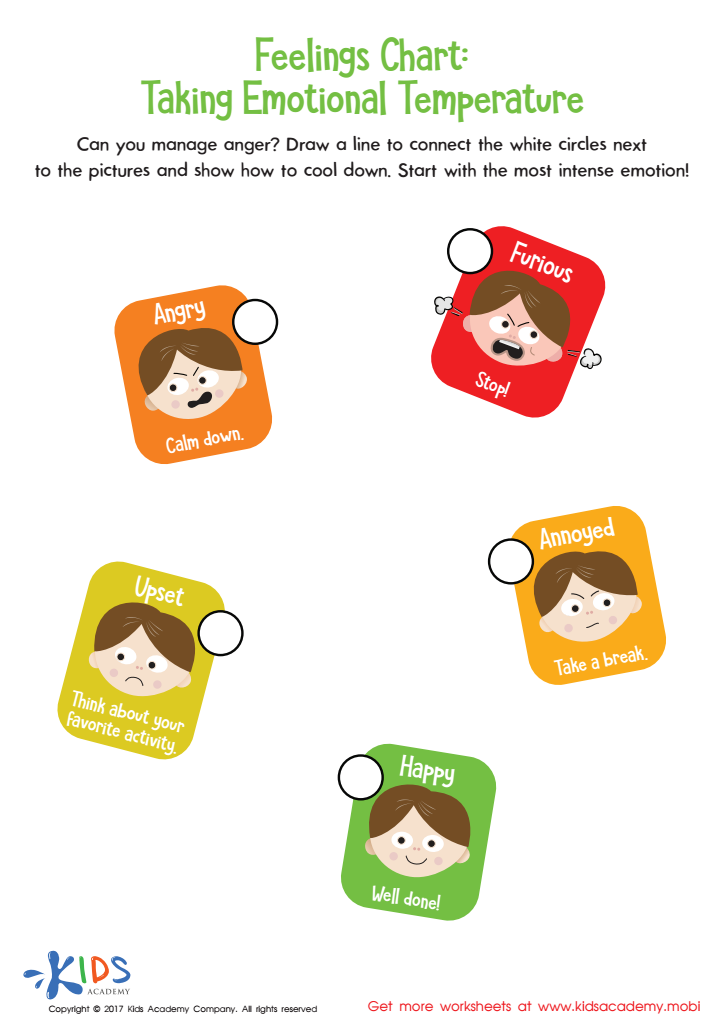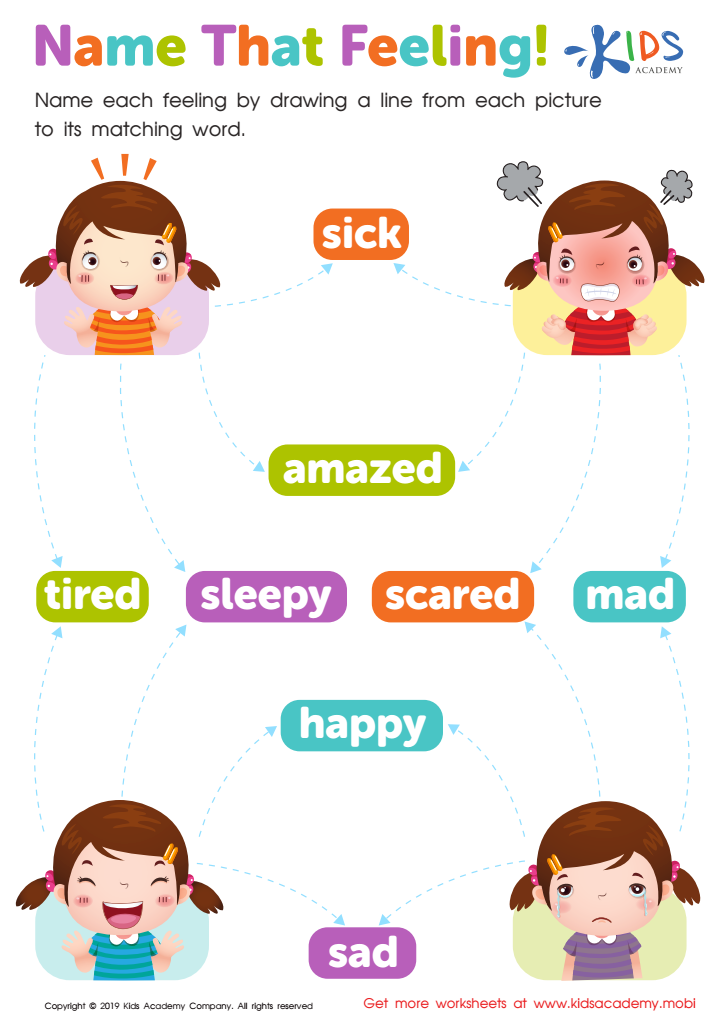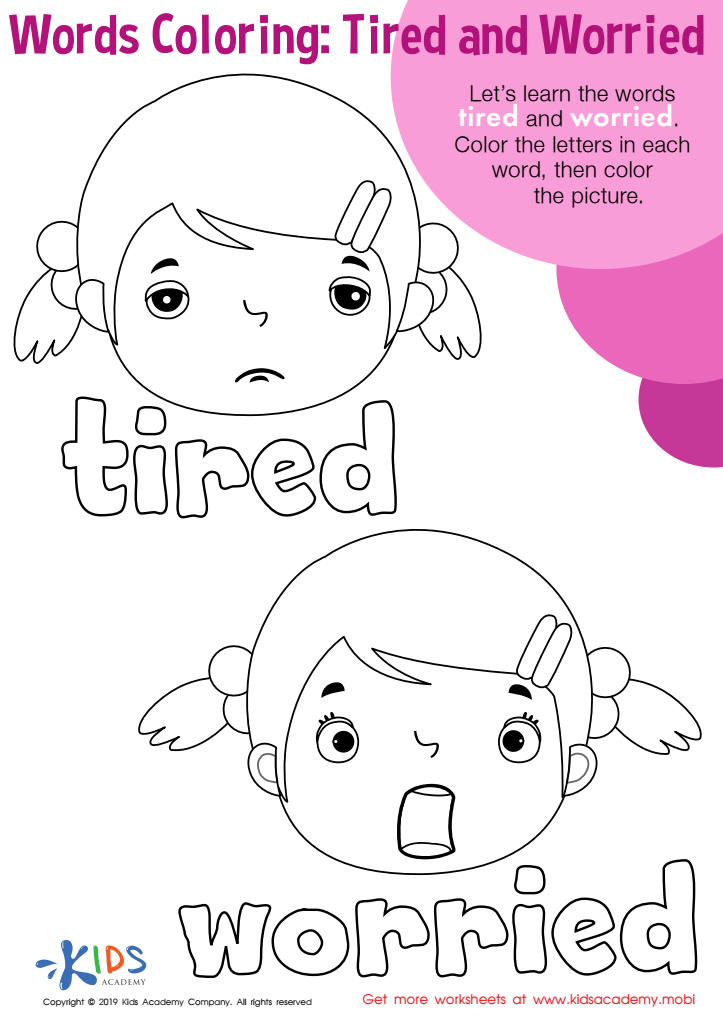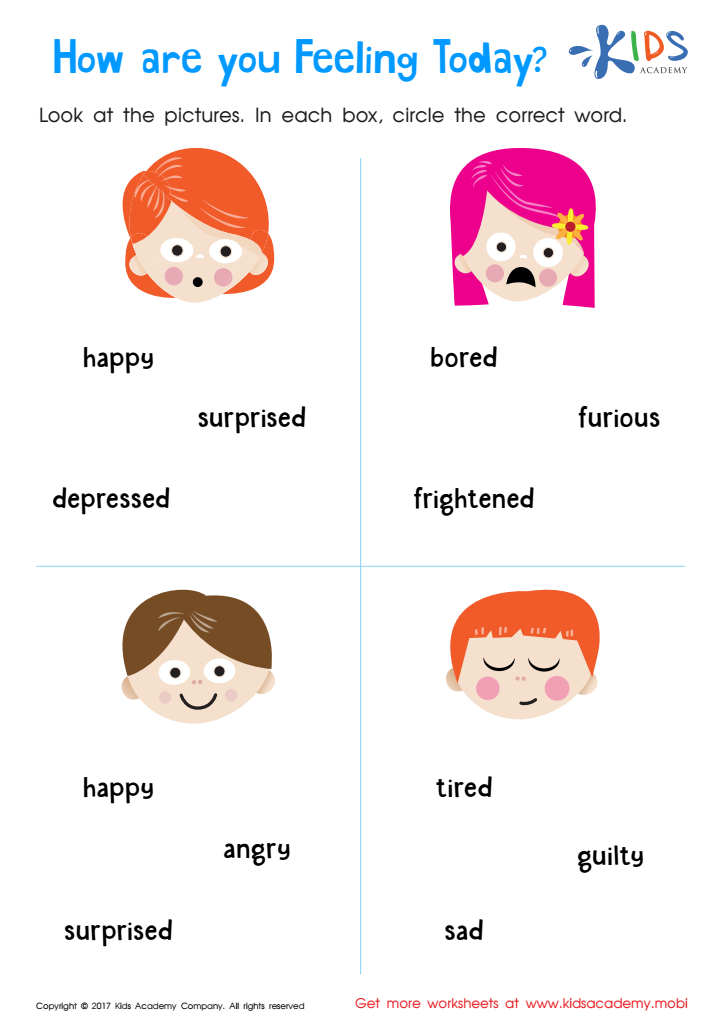Emotional identification Worksheets for Ages 4-5
4 filtered results
-
From - To
Discover our unique "Emotional Identification Worksheets for Ages 4-5" designed to help young learners recognize and articulate their feelings. These colorful and engaging activities enable children to understand emotions through fun exercises, interactive storytelling, and relatable scenarios. By fostering emotional intelligence early, we aim to support well-rounded development, enhance communication skills, and build empathy. Perfect for parents, teachers, and caregivers, these worksheets are an excellent resource for creating a nurturing and understanding environment. Download today and watch your child blossom as they learn to navigate their emotions with confidence.


Feelings Chart Worksheet


Name that Feeling Worksheet


Tired and Worried Words Coloring Worksheet


Understanding Feelings Worksheet
Emotional identification is crucial for young children, particularly ages 4-5, as it lays the foundation for their social, emotional, and cognitive development. At this formative stage, kids are beginning to navigate their feelings, form relationships, and understand their place in the world. For parents and teachers, helping children identify and label their emotions equips them with essential tools for effective communication and mental well-being.
Understanding emotions enables children to express their feelings rather than acting out or shutting down. This early skill prevents potential behavioral issues and promotes a positive classroom and home environment. For example, a child who can identify feeling angry or sad can be guided towards healthy coping mechanisms, fostering resilience.
Moreover, emotional identification correlates with empathy development. When children recognize emotions in themselves, they're better equipped to understand and respond to others' feelings. This is the cornerstone of building strong, healthy relationships and nurturing a supportive community.
In a structured academic setting, emotional regulation supports better focus and participation. Kids who manage their emotions efficiently are often more open to learning and less anxious, resulting in improved academic performance.
Overall, prioritizing emotional identification in early childhood helps to create balanced, empathetic individuals capable of navigating the complexities of social interactions and personal challenges.

 Assign to the classroom
Assign to the classroom


.jpg)









